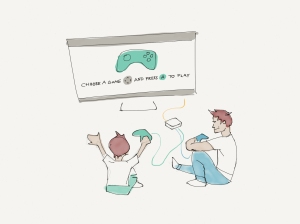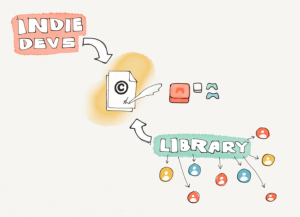Readings on issues facing university research in Canada
Here is a bibliography on the topic of research in Canadian universities. In no particular order, I’ve tried to incorporate some sub-themes, namely graduate students; research support; international; innovation. I’ve grouped results based on the type of source, such as trade associations, government reports and academic articles.
Trade Associations & Think Tanks
(Criteria: reports in English from the last 5 years issued by Canadian organisations. Method: Google with a focus on PDF files and keywords such as research, innovation, university)
- Association of Universities and Colleges of Canada, 2016. Universities Canada’s response to the Government of Canada’s Review of Federal support for fundamental science. 13 pages. Retrieved from http://www.univcan.ca/wp-content/uploads/2016/10/federal-support-for-fundamental-science-submission-oct-6-2016.pdf
- Association of Universities and Colleges of Canada, 2014. Canada’s Universities in the World: AUCC Internationalization Survey. 44 pages. Retrieved from https://www.univcan.ca/wp-content/uploads/2015/07/internationalization-survey-2014.pdf
- C.D. Howe Institute, 2013. From Curiosity to Wealth Creation: How University Research Can Boost Economic Growth. 32 pages. Retrieved from: https://www.cdhowe.org/curiosity-wealth-creation-how-university-research-can-boost-economic-growth
- Council of Canadian Academies, 2013. Paradox Lost: Explaining Canada’s Research Strength and Innovation Weakness. 33 pages. Retrieved from: http://www.scienceadvice.ca/uploads/eng/assessments%20and%20publications%20and%20news%20releases/synthesis/paradoxlost_en.pdf
- Federation for the Humanities and Social Sciences, 2016. Grasping the complexity of things: Building a federal research system to serve all Canadians Federation for the Humanities and Social Sciences submission to the Fundamental Science Review. 20 pages. Retrieved from:http://www.ideas-idees.ca/sites/default/files/sites/default/uploads/policy/2016/federation_fundamental_science_review_submission_-_oct_3_2016_-_final_-_en_0.pdf
- Royal Society of Canada, 2014. Driving Growth Through Research: The importance of research for Canada’s future in the world knowledge economy (Position Paper). 6 pages. Retrieved from: https://www.rsc.ca/sites/default/files/pdf/PP_Driving%20Growth_EN.pdf
Government
(Using Google and Publications Canada’s search engine. Because universities are governed by provinces in Canada, I also looked to Québec. I included here reports provided by Concordia University, my employer, to government agencies. OECD also had some interesting reports, but not UNESCO.)
- Canadian Institutes of Health Research, 2015. Health Research Roadmap II: Capturing Innovation to Produce Better Health and Health Care for Canadians: Strategic Plan 2014-15 – 2018-19. 39 pages. Retrieved from: http://www.cihr-irsc.gc.ca/e/documents/CIHR-strat-plan-eng.pdf
- Concordia University. Canada Research Chairs (CRC) and Canada Foundation for Innovation (CFI) Strategic Research Plan 2013-2018. 22 pages. Retrieved from: http://www.concordia.ca/content/dam/concordia/offices/vprgs/docs/Strategic_Research_Plan_2013-2018.pdf
- Fonds de recherché du Québec, 2014. Stratégie de mobilisation des connaissances 2014-2017. 29 pages. Retrieved from: http://www.scientifique-en-chef.gouv.qc.ca/wp-content/uploads/Strategie-mob-connaiss_2014-2017.pdf
- Fonds de recherché du Québec – Nature et technologies. Plan stratégique 2014-2017. 38 pages. Retrieved from: http://www.frqnt.gouv.qc.ca/documents/10179/464683/Plan+strat%C3%A9gique+FRQNT+2014-2017+VF+nov14.pdf/c7d6be6e-21d2-4d36-93fe-f830742f28c7
- Fonds de recherché du Québec – Santé. Plan stratégique 2014-2017. 36 pages. Retrieved from: http://www.frqs.gouv.qc.ca/documents/11314/435474/Plan+strat%C3%A9gique+FRQS+2014-2017+VF+nov14.pdf/f9be142f-ff9b-46ec-9ff9-f4258dc2f914
- Fonds de recherché du Québec – Société et Culture. Plan stratégique 2014-2017. 38 pages. Retrieved from: http://www.frqsc.gouv.qc.ca/documents/11326/449030/plan-strategique_2014-2017.pdf/5fc1d53a-161a-43b2-a2ca-e2f426804eed
- Natural Sciences and Engineering Research Council of Canada. NSERC 2020: A Strategic Plan. 40 pages. Retrieved from: http://www.nserc-crsng.gc.ca/NSERC-CRSNG/NSERC2020-CRSNG2020/NSERC2020-2020CRSNG_eng.pdf
- OECD (2015), OECD Science, Technology and Industry Scoreboard 2015: Innovation for growth and society, OECD Publishing, Paris. Retrieved from : http://0-dx.doi.org.mercury.concordia.ca/10.1787/sti_scoreboard-2015-en
- Québec, 2013. Politique nationale de la recherche et de l’innovation 2014-2019 – Priorité emploi. 72 pages. Retrieved from: http://www.mrif.gouv.qc.ca/PDF/actualites/MESRST_PNRI_politique_nationale_recherche_innovation.pdf
- Science Canada. Collaboration between Federal Research Funding Organizations: Policies and Guidelines. Multiple pages. Retrieved from: http://www.science.gc.ca/eic/site/063.nsf/eng/h_1E7A5F18.html (list of cross sectorial issues important to all disciplines, including open access and research data management)
- Social Sciences and Humanities Research Council. Advancing knowledge for Canada’s future: SSHRC’s Strategic Plan to 2020. 18 pages. Retrieved from: http://www.sshrc-crsh.gc.ca/about-au_sujet/publications/strategic-plan-strategique-2016-eng.pdf
- Statistics Canada, 2016. Higher Education Research and Development Estimates (HERD). Multiple Websites. Retrieved from: http://www.statcan.gc.ca/imdb-bmdi/5109-eng.htm (yearly data, last updated on June 2016. Click on “related products” and explore publications, CANSIM data and The Daily for various reports and datasets)
Academic articles
(Using Concordia University Library‘s Discovery layer, I searched for canad* AND universit* AND (research* or innovat*) and filtered for peer-reviewed articles from the last 5 years. I reviewed the first 50 hits and selected articles based on perceived relevance.)
- Derrick, Gemma, and Alicen Nickson. “Invisible Intermediaries: A Systematic Review into the Role of Research Management in University and Institutional Research Processes.” Journal of Research Administration 45.2: 11-45. Retrieved from: http://0-search.ebscohost.com.mercury.concordia.ca/login.aspx?direct=true&db=bth&AN=110547917&site=eds-live
- Gopaul, Bryan, et al. “The Academic Profession in Canada: Perceptions of Canadian University Faculty about Research and Teaching.” Canadian Journal of Higher Education 46.2: 55-77. Retrieved from: http://journals.sfu.ca/cjhe/index.php/cjhe/article/view/185269
- Moore, Gabriel, et al. “Implementing Knowledge Translation Strategies in Funded Research in Canada and Australia: A Case Study.” Technology Innovation Management Review 6.9: 16-27. Retrieved from: https://timreview.ca/article/1016
- Mowery, David C., and Arvids A. Ziedonis. “Markets Versus Spillovers in Outflows of University Research.” Research Policy 44.1: 50-66. Retrieved from: http://dx.doi.org/10.1016/j.respol.2014.07.019
- Murray, Dennis L., et al. “Bias in Research Grant Evaluation has Dire Consequences for Small Universities.” PLoS ONE 11.6: 1-19. Retrieved from: https://dx.doi.org/10.1371/journal.pone.0155876
- SÁ, CRESO M., and ANDREW KRETZ. “Technology Commercialization as University Mission: Early Historical Developments at the University of Toronto.” Technology & Culture 57.1: 119-43. Retrieved from: https://muse.jhu.edu/article/611802
- Sá, Creso M., and Jeffrey Litwin. “University-Industry Research Collaborations in Canada: The Role of Federal Policy Instruments.” Science & Public Policy (SPP) 38.6: 425-35. Retrieved from: http://spp.oxfordjournals.org/content/38/6/425.full.pdf
- Soetanto, Danny, and Sarah Jack. “The Impact of University-Based Incubation Support on the Innovation Strategy of Academic Spin-Offs.” Technovation 50-51: 25-40. Retrieved from: http://0-dx.doi.org.mercury.concordia.ca/10.1016/j.technovation.2015.11.001
- Veilleux, Sophie, and Johanne Queenton. “Accelerating the Pace of Innovation through University-Industry Collaboration Enhancement: In Search of Mutual Benefits and Trust Building.” Journal of International Management Studies 15.2: 41-58. Retrieved from: http://0-search.ebscohost.com.mercury.concordia.ca/login.aspx?direct=true&db=ent&AN=113781044&site=ehost-live&scope=site
- Viczko, Melody, and Clara I. Tascón. “Performing Internationalization of Higher Education in Canadian National Policy.” Canadian Journal of Higher Education 46.2: 1-18. Retrieved from: http://journals.sfu.ca/cjhe/index.php/cjhe/article/view/186014
- Wormald, Megan. “Emergence of the Canadian Research University.” College Quarterly 16.3: 1-. Retrieved from: http://collegequarterly.ca/2013-vol16-num03-summer/wormald.html
Books and ebooks
(Using CLUES, the library catalogue, for books with a Canadian focus from the last 5 years).
- Brownlee, Jamie,author. Academia, Inc : How Corporatization is Transforming Canadian Universities. Black Point, Nova Scotia: Fernwood Publishing. Retrieved from: http://clues.concordia.ca/record=b3271762
- (ebook) Lacroix, Robert, Louis Maheu, and Paul Klassen translator, eds. Leading Research Universities : Autonomous Institutions in a Competitive Academic World. Montreal Quebec ;aKingston Ontario; Ottawa, Ontario: McGill-Queen’s University Press; Canadian Electronic Library. Retrieved from: http://clues.concordia.ca/record=b3231050
- (ebook, original edition) Lacroix, Robert, and Louis Maheu, Les Grandes universités De Recherche : Institutions Autonomes Dans Un Environnement Concurrentiel. Montréal, Québec: Les Presses de l’Université de Montréal. Retrieved from: http://clues.concordia.ca/record=b3293016


